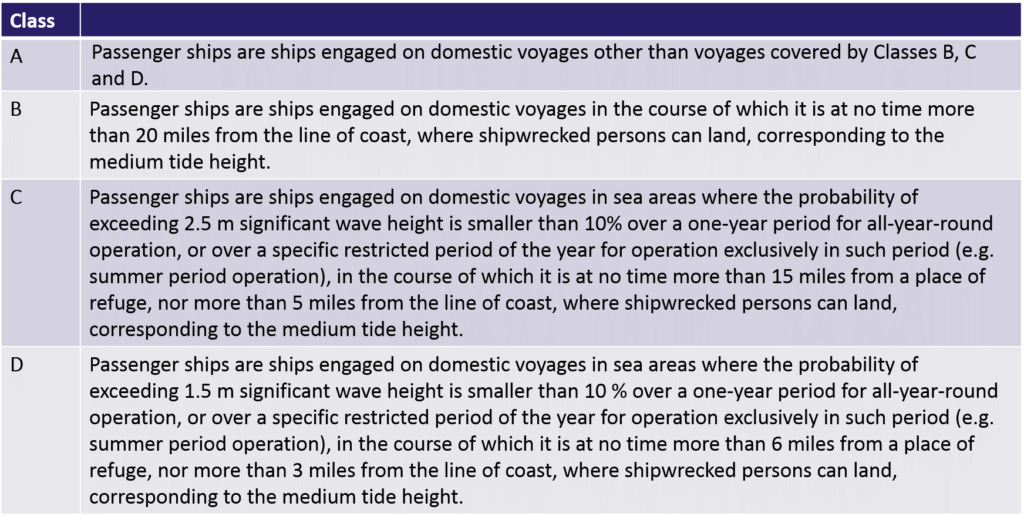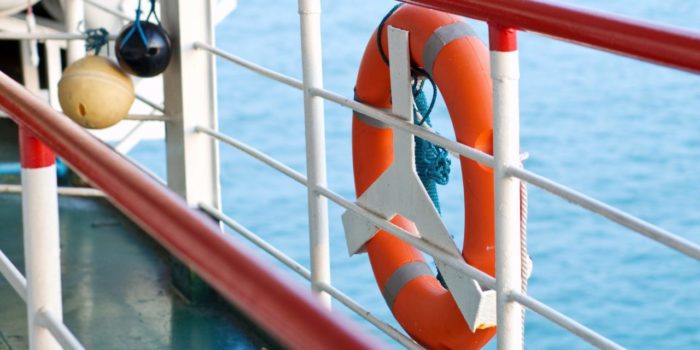As of 31st December 2018, compliance with the Passenger Liability Regulation (PLR) became compulsory for all Class B passenger ships carrying out domestic voyages in all EU and EEA member states. The Passenger Liability Regulation (PLR) implements the Athens Convention and the 2002 Protocol, unifying rules across the EU member states governing the liability of carriers to passengers at sea in case of an accident.
- The Athens Convention 1974 and the 2002 Protocol to the Convention deal with the liability of the carrier for carriage of passengers and their luggage.
- The Convention and the Protocol establish a framework under which passengers carried on a vessel who have suffered death or bodily injury or whose property has been damaged may claim compensation under a strict liability regime. It sets financial limits of liability for carriers in respect of claims brought by passengers and a two-year time bar for claims to be made.
According to data provided by the Shipowners Club, the PLR applies to all international voyages on passenger ships (carrying more than 12 passengers) with an EU Member State flag, the contract of carriage was made in an EU Member State or the place of departure or destination is an EU member state.
From 31 December 2016, the PLR also applies to domestic voyages carried out by Class A vessels. Member states had the option of deferring the application of the PLR to Class B vessels until 31 December 2018.
As such, while some states applied the PLR to Class B vessels from inception, as of 31 December 2018, the PLR now compulsorily applies to all Class B vessels carrying out domestic carriage in all EU and EEA member states.
The countries that deferred the application and to whom it now applies are Croatia, Cyprus, Estonia, Germany, Greece, Ireland, Italy, Latvia, Portugal and the UK.
The PLR is not applicable to Class C and D vessels unless the member state opts to introduce national legislation to make it applicable to these types of vessels. At present, we understand that no member states have opted to do this.
- Carriers are strictly liable up to 250,000 SDR for personal injury and death claims arising out of shipping incidents; and
- Where the Carrier is liable for death or personal injury to a passenger caused by a shipping incident and the liability exceeds this amount, the Carrier is further liable to an overall liability limit of 400,000 SDR unless the Carrier proves that the incident occurred without the fault or neglect of the Carrier.
A ‘shipping incident’ is defined as:
- shipwreck,
- capsizing,
- collision or
- stranding of the ship,
- explosion or fire in the ship or
- defect in the ship.
For all cases not arising out of a ‘shipping incident’, the claimant must establish that the Carrier was at fault. The Carrier loses their entitlement to rely upon the limits for personal injury and death if it is proved that the damage resulted from an act or omission of the carrier done with intent to cause such damage, or recklessly and with knowledge that such damage would probably result,
…the Club clarifies.
Carriers are also liable for the loss of or damage to luggage and vehicles up to the following limits:
- 2,250 SDR per passenger for cabin luggage;
- 12,700 SDRs per vehicle for vehicles including all luggage carried in or on the vehicle; and
- 3,375 SDRs per passenger for ‘other luggage’.
The 2002 Protocol allows member states to vary the limitation levels provided that these are not lower than those in the Protocol.
Carriers are required to maintain insurance or other financial security to cover death or personal injury for a minimum amount of 250,000SDR per passenger.
For definitions of Class A to D vessels, please see below:
































































